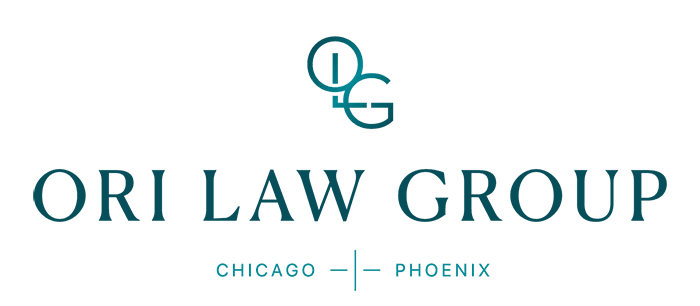Did You Become Ill With COVID-19 On The Job? Ask Us About Workers’ Comp.
The Illinois Workers’ Compensation Act and Workers’ Occupational Disease Act has been amended to offer additional protections for first responder or front-line workers who have contracted COVID-19 as a result of their employment.
At Ori Law Group in Chicago, we advise and represent workers who incurred losses through COVID-19, including those still struggling with “long COVID.” Our attorneys have more than 75 combined years of experience recovering compensation for injured workers and others.
What Changes Have Been Made To The Illinois Workers’ Compensation Act?
The Act generally places the burden on the injured worker to prove that their injury or condition arose out of a hazard of their employment. The new Amendment shifts the burden of proof in these specific claims.
Under the new Amendment, those covered injured workers will have the protection of a rebuttable presumption that their COVID-19 arose from a hazard of their employment, entitling them to benefits under the Workers Compensation Act and Workers’ Occupational Disease Act. This is important because it removes the burden on the injured worker to show exactly where and how the worker was exposed and contracted COVID-19.
However, this presumption may be rebutted if the employer is able to prove any of the following:
- The injured worker was working from home or was on leave from his or her employment for a period of 14 or more consecutive days immediately prior to the employee’s injury or period of incapacity resulting from exposure to COVID-19; or
- The employer was engaging in and applying to the fullest extent possible industry-specific workplace sanitation, social distancing, and health and safety practices based on updated guidance issued by the Centers for Disease Control and Prevention; or
- The employer was using a combination of administrative controls, engineering controls, or personal protective equipment to reduce the transmission of COVID-19 to all employees for at least 14 consecutive days prior to the employee’s injury or period of incapacity resulting from exposure to COVID-19; or
- The employee was exposed by an alternative source.
Do not try to be your own attorney if you believe you may qualify for benefits. Let Ori Law Group provide the guidance that you need.
Who Is Covered? Let Us Clarify This For You.
Under the new Amendment as currently written, those essential workers include:
- Police
- Fire personnel
- Emergency medical technicians (EMTs)
- Paramedics
- All individuals employed and considered as first responders
- Health care providers in nursing homes and rehabilitation facilities
- Home health care workers
- Correction officers
Crucial personnel identified in the March 20, 2020 Governor’s Executive Order include those working for the following types of employers:
- Stores that sell groceries and medicine
- Food, beverage, and cannabis production and agriculture
- Organizations that provide charitable and social services
- Gas stations and businesses needed for transportation
- Financial institutions
- Hardware and supplies stores
- Critical trades
- Mail, post, shipping, logistics, delivery, and pick-up services
- Educational institutions
- Laundry services
- Restaurants for consumption off-premises
- Venders of supplies to work from home
- Venders of supplies for essential businesses and operations
- Transportation
- Home-based care and services
- Residential facilities and shelters
- Professional services
- Day care centers for employees exempted by the executive order
- Manufacture, distribution, and supply chain for critical products and industries
- Critical labor union functions
- Hotels and motels
- Funeral services
These types of businesses are included as long as individuals employed by essential businesses and operations are required by their employment to encounter members of the general public or to work in employment locations of more than 15 employees.
Read some recent reviews by clients of our firm.
How To Determine The Date Of Injury Or Exposure
The date of injury is either the date that the employee was unable to work due to contraction of COVID-19 or the date they were unable to work due to symptoms that were later diagnosed as COVID-19, whichever comes first.
What Benefits Are Essential Workers Entitled To If They Have Contracted COVID-19?
Workers who have contracted COVID-19 are entitled to the same benefits under the Act as other workers injured in the course of their employment. These typically include:
- Temporary total disability (TTD) benefits of 2/3 of their gross average wage while off work
- Payment for related medical expenses
- Awards or settlements for permanent disabilities
- Death benefits, if applicable
For more information, consult with one of our experienced workers’ compensation and personal injury lawyers. We are here to help you understand and claim your rightful benefits. We will fight denials if necessary.
Let Us Hear From You
If you or a family member has contracted COVID-19 while performing an essential service, please contact us to discuss what benefits may be available to you. Dial 312-985-0299 or fill out our online form.
